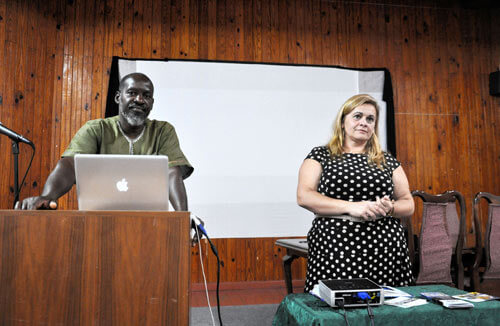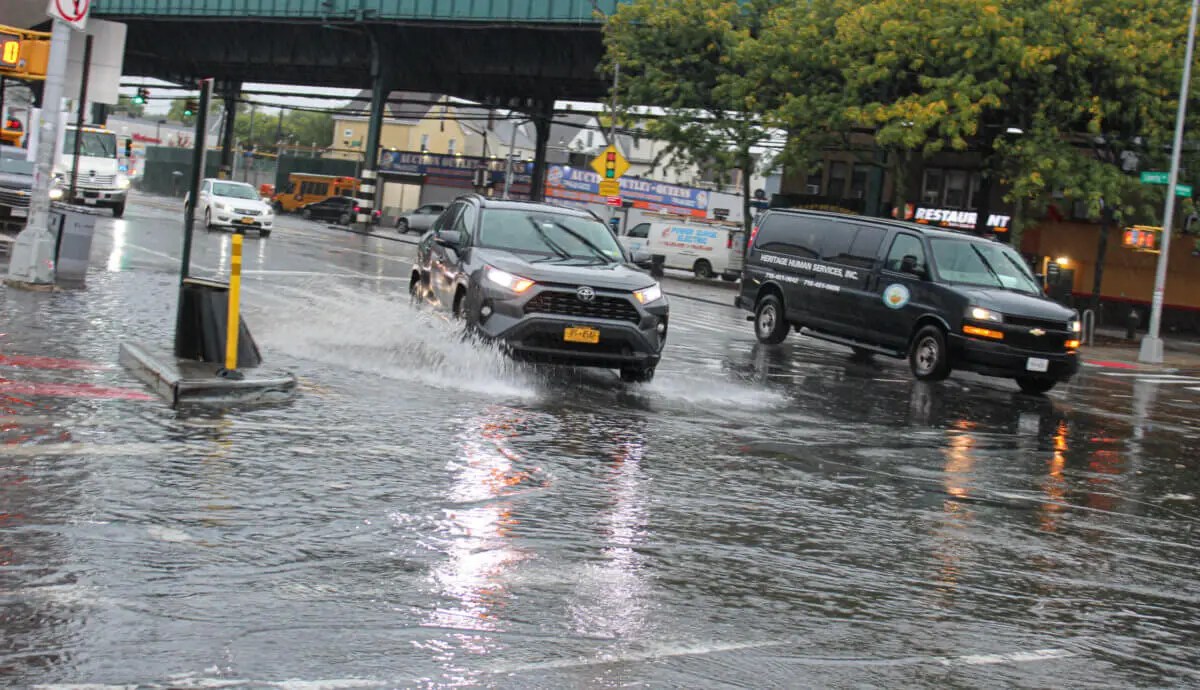The Caribbean Hotel and Tourism Association (CHTA) says it is backing calls by Caribbean leaders for the international community to keep the devastating impact of climate change on the global development agenda.
As the region’s prime ministers and presidents gather in New York for the annual meeting of the United Nations General Assembly Debate, CHTA President Karolin Troubetzkoy said: “We must continue to let the world know how parts of the Caribbean are beginning to be devastated by the effects of climate change and the urgent need to strengthen our resilience to such assaults.”
Together with CHTA’s Director General and chief executive officer Frank Comito, Troubetzkoy expressed continued sympathy for the hardship following the passage of Hurricanes Irma and Maria, and urged everyone in the projected path of Maria to take serious precautions.
“The tourism officials want to see a united front to bring immediate aid, calling on regional organizations, governments, relief organizations and multilateral organizations to pursue a more coordinated effort in responding to the needs of the region’s people following these devastating weather events,” the CHTA said.
Addressing the impact of Hurricanes Irma and Maria on some of the islands in the Lesser Antilles, Puerto Rico and the eastern part of the Dominican Republic, Troubetzkoy said “these are the very real consequences of humankind’s inattention to climate changing excesses.”
She said “it’s time for the industrialized wealthier countries, which are major contributors to climate change, to recognize the need to help the region to strengthen our defenses against future disasters, including not only hurricanes but extreme weather events which bring flooding and landslides.
“Let us not forget the fact that we in our small island nations contribute the least to climate change; yet, we suffer the most from it,” she added.
The CHTA president said building a more resilient Caribbean will require an assembly of the international community but also the Caribbean countries themselves.
“We keep talking about the importance of public and private sector collaboration, but we need to do more, together, to address this momentous task,” she said.
“We need to be respectful of our ecosystem and find ways to strengthen the marine environment,” she added. “We need to educate. We need to look at how and where we build, and how we protect our people and their livelihoods.”
But Troubetzkoy said effective action is often hampered by lack of funds.
“Whilst it appears that there are various international funds to draw from, there always is a lot of red tape attached, and this has been a hindrance to move forward with many aspects of creating a more resilient environment,” she said, adding that “this has also impeded the private sector from proceeding more effectively.”
Troubetzkoy echoed strong support for comments made by British philanthropist and businessman Sir Richard Branson, who stated this week that “the world and its leaders can no longer pretend that increasingly shattering catastrophes like Hurricane Irma are some kind of accident or coincidence.
“There is absolutely no doubt that climate change is real, and it’s triggering the full extent of nature’s fury,” he said. “How much more destruction do we need to act? Rising ocean temperatures are likely to result in hurricanes with greater intensity.”
Troubetzkoy said the United Nations General Assembly this year is “an important time for our political leaders to issue consolidated messages to the rest of the world on the urgent need to help our region buttress our defenses against the very real threat of climate change.”
The travel and tourism industry has launched the Caribbean Tourism Recovery Fund, uniting CHTA with the noted Tourism Cares organization, which has helped to lead private sector efforts globally following crises.
The fund allows tourism industry stakeholders and friends of the region throughout the world to pool their resources in support of vulnerable, devastated areas of the Caribbean that welcome millions of visitors in a region that supports 2.4 million tourism-related jobs, the CHTA said.























